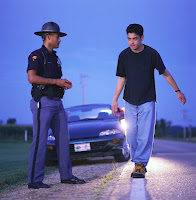NPR Recently ran a story about 11,000 sexual assault kits that were discovered unprocessed in a Detroit police storage facility. The story focuses on Wayne County prosecutor Kym Worthy who is quoted as saying: "I don't know if they were just forgotten, I don't know if they were ignored, I don't know if they were deliberately put there." The story has been widely disseminated through other outlets. Public response seems to be outrage that so many rapists have gone free. This is an understandable response to the way the story has been framed, but I think that reaction misunderstands the issue:
The story makes two assumptions which I suspect are fundamentally flawed:
First, the piece suggests that DNA evidence in such kits is the key evidence used to identify and convict rapists. As a defense attorney experienced in cases involving these kits, I can assure that they are often not so central to the prosecution case. Only a very few sexual assault perpetrators are unknown to the victim. Many of these cases turn on much more subtle issues like consent, compulsion, intoxication, or the relationship between the parties. These cases are rarely a 'who done it.' Also, the results from these kits are often a mess of inconclusive an contaminated genetic analysis. Even in cases where the perpetrator is unknown and a DNA profile is extracted, turning that profile into an identification is no slam dunk.
Second, the story's assumes that each of the kits represents an unsolved sexual assault case. That could be the case but an unanalyzed kit does not necessarily mean an unprosecuted crime. Obviously, if police are getting sexual assault complaints and never following up on the cases, that is a huge injustice to victims and a massive disservice to public safety. This would be a major systemic problem with policing in Detroit, not just a question of resources to do DNA testing. The reality is that each of these kits is only part of of the evidence which may include witness statements, photographs, interviews and other investigation.
The the real story may be somewhat more nuanced and more troubling. A closer look at the kits might show that many represent cases where the defendant was convicted at trial or plead guilty without the evidence ever being analyzed. Maybe some defendants plead guilty before the analysis was done. Maybe the defense attorney knew that the kits had not been tested and forced the case to trial quickly to secure an advantage. And maybe investigators stored the kits because it was easier than analyzing them to create potentially exculpatory evidence when they already had a suspect in custody.
The story is disturbing, but the easy read is probably the least interesting. The physical size of the kits might be the only reason that the issue came to anyone's attention. Sure, maybe the situation is unique to this department and this type of evidence, but consider that an intrepid reporter or diligent defense attorney will rarely find a store room full of witnesses who's statements were disregarded; or a warehouse full of the fingerprints that were never lifted; or a computer drive full of officer reports that were never submitted to the DA.
I am not a reporter and don't know anything more about the story than what I have learned from news outlets. It will be interesting to follow the situation to see what develops. I am sure news of a few prosecutions will trickle out, but we might not hear about convictions that get overturned.
Click for Info About The Author:
Friday, April 27, 2012
Monday, April 23, 2012
Criminal Charges and Hiring a Criminal Defense Lawyer: Five Ways to Avoid Both
Summer is upon us, many will shed clothing, meet friends for drinks and enjoy the warm weather that almost makes it feel like Northern New England has a climate suitable to human habitation. Many will remember those warm nights fondly, others will remember them by the criminal charges filed in the local court. Sometimes, it is just luck that separates the two groups. Still, a little bit of knowledge about the criminal law and about your rights can go a long way towards making sure that you end up sleeping in your own bed and not at the County Jail.
Location:
75 Pearl St, Portland, ME 04101, USA
Thursday, April 19, 2012
Operating Under the Influence or OUI charges: What can a Lawyer do?
 |
| The "Walk & Turn" is one of the Standardized Field Sobriety Tests |
Location:
75 Pearl St, Portland, ME 04101, USA
Subscribe to:
Posts (Atom)
